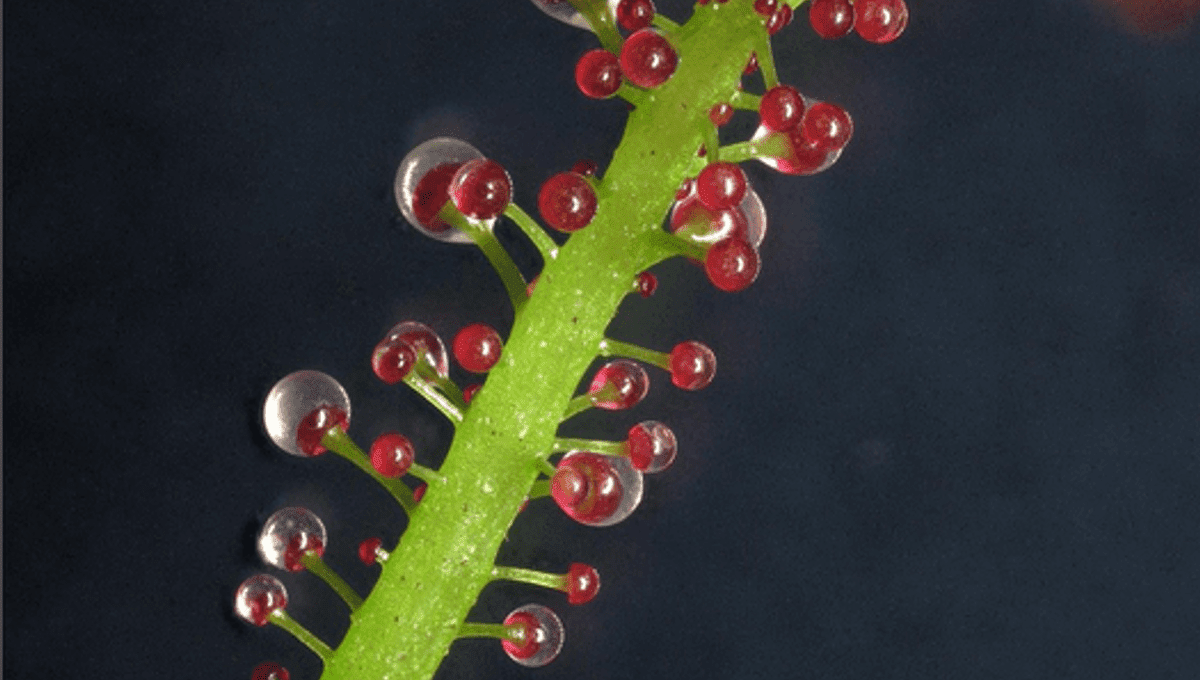
Known to the scientific community for its promising properties against everything from cancer to infections, Triphyophyllum peltatum is an important plant. However, scientists have just discovered something seriously strange about it – sometimes, under the right conditions, this plant gets a taste for meat.
New findings suggest that while Triphyophyllum peltatum is usually content with a typical plant diet, it can adapt to deficiencies and become carnivorous, preying on small insects unfortunate enough to wander into its sticky trap. It is now the only known plant in the world that can do this.
The plant is native to West Africa and is of high value to science currently, due to a chemical it secretes in its sap called betulinic acid. This has shown potential against a number of chronic diseases and even cancers through the inhibition of signaling factors, making the plant remarkably important for research.
Scientists knew that Triphyophyllum peltatum was capable of producing carnivorous leaves during late developmental phases, but they had no idea why it was doing it. It is an extremely flexible plant, capable of adapting how it develops to its environment; when young, the plant grows normal leaves, which can then turn into adhesive traps as it grows, before turning into either normal leaves or ones with hooks to climb up objects. It doesn’t always create these traps, and scientists were keen to understand why.
Unfortunately for scientists, this plant is quite picky and is notoriously difficult to cultivate. The team went to the greenhouses of Würzburg Botanical Garden and gave the plant the ideal conditions to thrive, including a perfect nutrient medium. The plant grew well, so it was time for the team to make its life a bit more difficult.
“We exposed the plant to different stress factors, including deficiencies of various nutrients, and studied how it responded to each. Only in one case were we able to observe the formation of traps: in the case of a lack of phosphorus,” said Traud Winkelmann, study author, in a statement.
It appears that when deficient in phosphorous, the plant adapts to gain the essential nutrient from more nefarious means, laying traps for insects which it then digests with secreted enzymes. In its native habitat, the soil of West Africa can be poor in certain nutrients, leading the plant to develop this incredible adaptation.
The findings now give insights into the origins of plant carnivory, perhaps pointing to evolution triggering this behavior as certain nutrients became scarce. The team now hopes their methods of cultivating this difficult plant, alongside their new understanding of the triggers behind its carnivory, can forward future research into Triphyophyllum peltatum’s gene expression.
The research is published in the journal New Phytologist.
Source Link: When This Plant Lacks A Certain Nutrient, It Gets A Taste For Meat